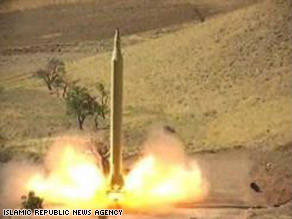
WASHINGTON - The nation's top economic officials urged Congress on Thursday to give them new regulatory tools to better protect the country from economic and financial havoc if a major Wall Street firm were to fail.
Related Video
» All news videoFederal Reserve Chairman Ben Bernanke and Treasury Secretary Henry Paulson made the recommendations in a joint appearance before the House Financial Services Committee as fresh worries gripped investors about the financial shape of mortgage giants Fannie Mae and Freddie Mac as well as investment bank Lehman Brothers Holdings Inc.
Both Bernanke and Paulson endorsed creating new procedures by which the government can guide an orderly liquidation of a failing investment bank in an effort to minimize any fallout that might be inflicted on the broader financial system and the overall economy. Such procedures, which are in place for commercial banks, might have made the dissolution of investment firm Bear Stearns more orderly.
Although Bernanke defended the Fed's controversial decision to financially back JP Morgan Chase's takeover of the Bear Stearns, the Fed chief said, "This is not something I want to do again" were other investment firms to falter.
Given a crush of other business, Congress is unlikely to give financial regulators new powers this year. It will be for the next president and the next Congress to grapple with.
The committee's chairman, Rep. Barney Frank, D-Mass., suggested it was more important for Congress to "do it right" rather than act quickly on substantial legislative changes. Bernanke and Paulson agreed with that assessment. "Realistically it is going to be difficult to get things done this year," Paulson acknowledged.
Still, new powers could help insulate the financial system — U.S. taxpayers — from getting walloped if a big financial company were to collapse, Bernanke and Paulson said.
"In light of the Bear Stearns episode, Congress may wish to consider whether new tools are needed for ensuring an orderly liquidation of a systemically important securities firm that is on the verge of bankruptcy, together with a more formal process for deciding when to use those tools," Bernanke said.
Paulson, who recently laid out such a proposal, said: "It is clear that some institutions, if they fail, can have a systemic impact." However, financial players need to be disciplined in managing risk and not expect the government to fly to their rescue, he added. "For market discipline to effectively constrain risk, financial institutions must be allowed to fail," he said.
The recommendations were part of a broader debate about the best ways to revamp the country's antiquated regulatory system. The idea is to brace the system to better respond to modern-day crises like the housing and credit debacles that have badly bruised the economy.
The Treasury chief also sought Thursday to calm investor jitters about the financial health of mortgage giants Fannie Mae and Freddie Mac. They are "working through this challenging period," Paulson told Congress. "Their regulator has made clear that they are adequately capitalized."
Shares of Fannie and Freddie tumbled Thursday amid widespread fears on Wall Street that shareholders will be wiped out if the government is forced to rescue the two companies.
Asked whether such companies could pose a risk to the U.S. financial system, Paulson replied: "In today's world, it is not helpful to speculate about any financial institution and systemic risk."
Meanwhile, Lehman Brothers, the nation's fourth-largest investment bank, is seen by many analysts to be the weakest of Wall Street's biggest firms. The company's shares plunged Thursday morning. Concerns emerged about Lehman's liquidity and leverage last month after the investment bank reported an unexpected $3 billion loss for the second quarter.
Of the broader financial system, Paulson said: "Right now we're going through a period of unusual turmoil" and the government's focus needs to be on stabilizing the situation. Bernanke echoed that sentiment.
On the weakened value of the U.S. dollar, which has boosted exports but contributed to high oil prices, Paulson said: "We want a strong dollar. A strong dollar is in our nation's interest. ... We're going through a tough period right now."
Bernanke has called for stronger oversight of big Wall Street firms, which are regulated by the Securities and Exchange Commission. Those firms have been given unprecedented — albeit temporary — access to tap the Fed for emergency loans, a privilege that has been granted for years to commercial banks, which are more tightly regulated.
With credit problems persisting, the Fed may extend the lending privilege to investment banks into next year, Bernanke has said.
The Fed's financial backing of JPMorgan Chase's takeover of the troubled Bear Stearns has drawn criticism from Democrats, who call it a government bailout that could put billions of taxpayer dollars at risk. Both Democrats and Republicans lawmakers said changes need to be made to protect taxpayers in the future should another big firm get into trouble.
Rep. Spencer Bachus, R-Ala., said a "shock absorber" is needed to make sure that "taxpayers are not holding the bag. ... This is a tall order."








 Author and journalist Christopher Hitchens says it was difficult finding someone who would agree to waterboard a man of 60. (Christian Witkin/McClelland & Stewart)
Author and journalist Christopher Hitchens says it was difficult finding someone who would agree to waterboard a man of 60. (Christian Witkin/McClelland & Stewart) 